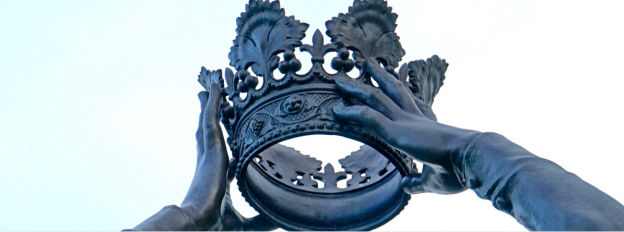Last week Queen Elizabeth 2 passed, the first time a Monarch died in many of our lifetimes. The Late Queen will be remembered for her lifetime’s dignity and service. As Queen, she held great wealth and power (in a sense). Yet her eternal legacy will not be her reign, but her faith in Christ.
People like to gather power and wealth because it makes them notable, but in the end most will just become a passing mention at best. Like three of the judges mentioned in the next section of Judges. Ultimately their power and wealth, however beneficial to them and to Israel, is nothing compared to God. They, like us, are passing mentions in the story of history, which brings glory to God.
Compared with the major sequence of Jephthah which took up nearly 50 verses (more if you count the verse prior which set the scene for his appearance), the three judges that followed are recalled with only sparse details of their rule in eight verses. This can be broadly summarised as their names and pedigree, and the duration of their rule.
These men must have been warrior leaders, but there is no detail of their victories. Perhaps this serves as a point to remind us that not everything in Judges was All War All The Time, as you might assume from only reading the great stories of deliverance.
While there is not a wealth of detail about their lives, their rule, or who they defeated, it is certainly clear that in the case of at least two of these judges, they were wealthy and powerful.
Firstly, Ibzan had 30 sons and 30 daughters (v.9). As any parent can attest, not only did that mean he had a fair amount of money to support that many, but secondly he must have been extremely busy! Ibzan was able to marry his daughters off to outside his clan, and marry in daughters-in-law too, which would have given him massive social power and influence through family ties (v.9).
Secondly, Abdon had 30 sons and 40 grandsons, who rode on 70 donkeys (v.14). Poor people walked. Rich people rode. Abdon had enough wealth to ensure his sons and grandsons never suffered from shin splints.
The mention of Ibzan and Abdon’s families also contrasts against Jephthah. Jephthah only had one daughter, and because of his tragic vow and his foolish fulfilment of it, lost that daughter and any descendants. The civil war with Ephraim (12:1-7) and the short nature of his rule after defeating the Ammonites suggests God’s judgement against him for this act.
On the other hand, Ibzan and Abdon had great numbers of descendants. Ibzan had 60 daughters (30 daughters plus 30 daughters-in-law)! Was this because Ibzan was more righteous than Jephthah? Who knows! While we can speculate, ultimately the answer rests in God’s providence.
Their numbers also compare to Gideon. Gideon’s sons were killed by his illegitimate son Abimelech, but there is no indication of any of this sort of behaviour by Ibzan and Abdon’s sons.
But note that unlike Gideon, and like Jephthah, all three judges did not oversee periods of rest. Unlike earlier in Judges, all of the later judges have their years of rule listed, but not years of rest. Ibzan, 7 years (vv.8-10). Elon, 10 years (vv.11-12). Abdon, 8 years (vv.13-15).
Why? Because of Israel’s increasing apostasy. Israel’s righteousness was like water circling a drain. It kept going around in circles, but descending.
Finally, there is another reason we can see in the inclusion of these three judges. These three make the total recorded in Judges add to 12. Further, smarter minds than I point out that one from each tribe (including the half-tribes of Joseph), excluding Levi, is covered in this book. Levi will be dealt with by a separate tale later.
That reminds us that Judges shows us the wisdom and plan of God in history. God is working to advance his salvation plan, through the tribes of Israel.
Some of those characters are great in their deeds, and remembered for such. Some, like Elon, are a passing mention. Ibzan and Abdon are not much more, despite their great wealth and power. It too fades away to a few verses in the great story of God in history.
Same for us. In God’s providence, we all have different roles to play. Some are more dramatic than others. Some of us may receive greater wealth, power, or kids than others. But all of these things are just passing mentions in God’s Story.
Like Ibzan, Elon, and Abdon, we too will die. We are a moment, a passing mention. Only God is unchanging, eternal. Our reigns will end, but Christ’s reign will never end. Our eternal legacy is not in what we accomplish, accumulate, or breed, but found in our faith in Christ.
For all the good that wealth and power can bring, it is nothing compared to faith in Christ. Only in Christ are we raised to reign eternally with him, to glorify God in never passing mention.


